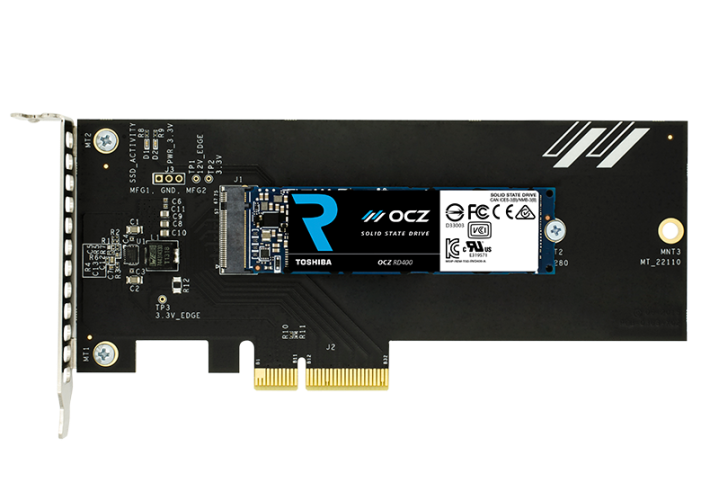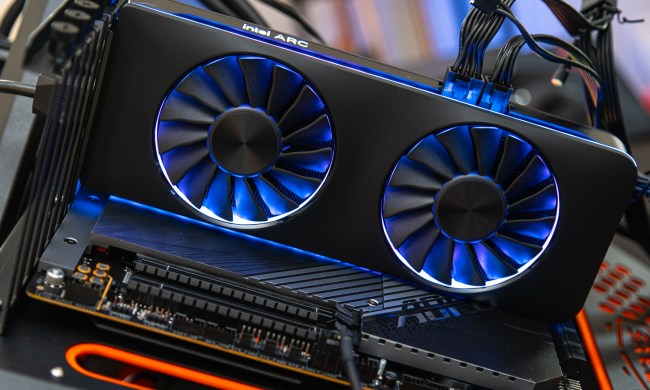
Since it acquired OCZ, Toshiba has utilized the brand as a name for a product range, rather than an overarching brand and that continues here. This is an OCZ drive, but Toshiba’s name is front and center and it joins its line up of solid-state drives at the “Expert” end of the spectrum.
Performance numbers quoted by Toshiba are strong, though we would of course recommend taking them with a pinch of salt until you have seen some real-world test numbers in less-than-ideal scenarios. Still, as a baseline for our idea of what the drive can do, they suggest the RD400 is pretty fast.
The larger capacities have a sequential read speed as high as 2,600MBps and the 512GB version sports a write speed of 1,600MBps. Not all of them are quite that quick, but most don’t fall far behind.

Most impressively, the largest capacity — the terabyte version — is capable of 210,000/130,000 IOPS for random read/write 4K, respectively. There are faster drives out there, but they tend to be pretty expensive, and as Hexus points out, more competition in any commercial space is always useful for those of us who buy the kit.
Internally, it’s no surprise that this drive makes use of Toshiba-branded 15nm MLC and a Toshiba-branded controller, which we really don’t know much about at this time.
Prices for this drive start at $110 for the 128GB version, up to $740 for the terabyte edition. Whichever one you buy, though, you’ll get a limited five-year warranty with it.
If you like the look of this drive, but don’t have an M.2. storage port on your motherboard, never fear: Toshiba offers an optional PCIExpress x4 M.2. adapter card for an extra $20.



